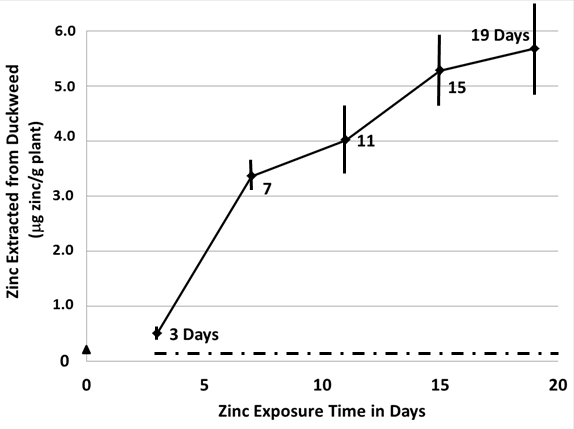Dispersing Agents Prevent Negative Impact of Oil on Uptake of Zinc by Duckweed (Lemna minor)
(1) Carbondale Community High School, Carbondale, Illinois, (2) Ivy Tech Community College, Lafayette, Indiana, (3) Southern Illinois University, Carbondale, Illinois
https://doi.org/10.59720/14-032
Oil spills have had extremely negative effects on the environment. The oil directly coats both animal and plant species living in and around the water, rendering these organisms unable to carry out normal life functions such as locomotion, in the case of animals, and nutrient uptake, in the case of plants. Long term, the oil contributes organic chemicals to the water, which may either dissolve or sediment. Duckweed is an aquatic plant that provides food and shelter to animals and removes pollutants, such as zinc, from the water in which it resides. It is an important plant in phytoremediation work, and an oil coating could interfere with this important function. Means of removing oil from water include both physical methods, such as skimmers, and chemical approaches. There is concern that chemical techniques, such as adding adsorbents and/or dispersants to the contaminated water, may also cause environmental problems and may interfere with zinc uptake by duckweed. Here, we confirm that the aquatic plant duckweed (Lemna minor) can remove zinc from its environment and that this process is impaired by the presence of oil in the water. Furthermore, we demonstrate that the negative effect the oil has upon zinc uptake by duckweed can be ameliorated by treatment with the dispersing agent, Dispersit™, and that the dispersant itself does not inhibit zinc uptake by duckweed. We conclude that treatment of oil-contaminated water by this dispersant may be a useful approach to maintaining the ability of duckweed to remediate polluted water.
This article has been tagged with: